- Home
- John Scalzi
The End of All Things: The Fourth Instalment Page 3
The End of All Things: The Fourth Instalment Read online
Page 3
“Yes,” I said. “Because it’s not. We know that Khartoum was one of ten colony worlds that were going to jointly announce their independence. Equilibrium got them to jump the gun for its own purposes. I think part of that purpose was to invoke an outsized, military response on our part.”
“But that would just intimidate the other colonies,” Balla said.
“Or anger them,” Hart said.
“Or inspire them to stick to their guns, as it were,” I said.
“‘Stick to their guns’ is a curious phrase to use,” Balla said. “Because they don’t have any. The Colonial Union has all the weaponry on its side. Whether they’re inspired or angry or both, the colonies can’t miss the Colonial Union’s message that the party’s over.”
I glanced over to Abumwe.
“Unless Equilibrium has been talking to these other colonies as well,” she said.
“Right,” I said. “Equilibrium is small so it has to maximize its impact. It has to go for gestures that make a splash. It’s something they learned from us.”
“How so?” Abumwe asked.
“Like when we fought the Conclave over Roanoke,” I said. “It’s four hundred alien races, all with their own military reach. We couldn’t possibly take them on ship-to-ship. So when we wanted to destroy it, we lured them into a trap we devised, destroyed their grand fleet by subterfuge, and waited for the fallout to take down the Conclave.”
“There is the minor detail that the plan didn’t work,” Balla said. “The Conclave survived.”
“But the Conclave wasn’t the same after that,” I pointed out. “Before Roanoke, the Conclave was this dauntingly large force that was impossible to fight. After Roanoke, there was an open rebellion and there was the first assassination attempt on General Gau, their leader. Those tensions never went away, and Gau was in fact later assassinated. We were there for it. You can lay out a path from Roanoke to Gau’s death. The Conclave today is what the Colonial Union made it. Which also means in some way the Colonial Union helped create the conditions that make Equilibrium possible.”
“And now Equilibrium is shaping the Colonial Union,” Abumwe said.
“It’s certainly making the effort, yes.”
“There is some irony to that.”
I nodded at this. “And the thing we have to remember is that it’s doing it for its own purposes.” I pointed in the direction of the very small room in which we were currently keeping Khartoum’s prime minister. “Okada and his government got sold a bill of goods by Equilibrium, which attacked us. But it’s not Equilibrium who is being punished, it’s Khartoum.”
“When you lay down with dogs, you get fleas,” Hart said.
“Yes. I’m not defending Okada’s act. He and the planet wouldn’t be in the position they are today if he and his government hadn’t let Equilibrium through the door. But Equilibrium got what it wanted out of the exchange. More Colonial Union oversight means more resentment of the Colonial Union, not just here, but everywhere that finds out about it.”
“The Colonial Union holds a virtual monopoly on information,” Balla said.
“It did,” I agreed. “It doesn’t anymore. And, leaving aside the general philosophical issue with a single source bottlenecking every bit of communication for its own purposes, that presents its own problems.”
“Like Equilibrium creating its own version of events here on Khartoum and presenting it to the other colonies,” Abumwe said.
“Right again,” I said. “Which goes back again to my point about Equilibrium maximizing its efforts. It doesn’t take a lot for them to leverage mistrust of the Colonial Union into the appearance of being a fair dealer to the colonial worlds.” I pointed to Abumwe. “You said we don’t have much time. I think it’s more correct to say that we’re already out of time. Equilibrium is almost certainly already out there selling its version of events, and when it shows a feed of all our ships floating above the surface of Khartoum, that’s just going to act as confirmation to the rebellious colonies.”
“How do we know about the rebellious colonies?” Balla asked.
“The Colonial Union is not entirely without friends on the colony worlds,” Abumwe said. “Or in their governments. We have had people feeding us information for a while now.”
“And we never did anything on it? We let it get to this point?”
“With the politics of the colony worlds the Colonial Union prefers to do things as quietly as possible, until they can’t be handled quietly anymore.” Abumwe shrugged. “It worked before, for decades. The Colonial Union is resistant to change. And at the top there’s the belief that things can still be managed quietly. That we will be able to control the actions of the colonies.”
“That’s not working out very well at this point, Ambassador,” Balla said.
“No, it isn’t,” Abumwe agreed.
“And we knew nothing about Equilibrium’s involvement.”
“Remember that one of the prime movers of Equilibrium turned out to be a highly placed member of our State Department,” I said, to Balla. “It’s entirely possible that what we thought we knew about the independence movements on the colony worlds was based on highly edited information. And once Ocampo was retaken, Equilibrium would naturally change tactics. That would be my guess, anyway.”
Balla turned to me. “Have you always had this sort of paranoid mind?”
I smiled. “Captain, the problem is not that I’m paranoid. The problem is that the universe keeps justifying my paranoia.”
Abumwe turned her attention back to me. “So, your analysis, paranoid or otherwise, is that this encounter was a success for Equilibrium.”
“Yes,” I said. “It wasn’t perfect; I think they would have liked to have destroyed the Tubingen, killed everyone aboard, made it look like the Khartoumian government was entirely responsible for it all, and have us none the wiser for it. But as it is, they’ll be able to sell their version to people who are receptive to hear it. Equilibrium’s been working on a strategy of making us look deceptive and dissembling for a while now. It works because we are, in fact, deceptive and dissembling.”
“What’s their next step, then?” Hart asked.
“I think that may be the lieutenant’s point,” Abumwe said. “They don’t have to have a next step. They just have to wait for us to do what we always do, the way we always do it.”
I nodded. “Why do the work to destabilize us when we’ll do it for ourselves.”
“But there still has to be a point to it,” Balla said, to Abumwe. She turned to me. “Look, Lieutenant, I understand that you are deeply enthusiastic about this convoluted web of actions that you’re spinning. I’m not going to say that it’s wrong. But Equilibrium isn’t doing this just for the fun of it. They’re not nihilists. There has to be a point. There has to be a plan. This has to lead to something.”
“It leads to the end of all things,” I said. “Or less dramatically, to either or both the Colonial Union and the Conclave fracturing, and the return of every species in our local slice of space being constantly at war with each other.”
“I still don’t know why anyone would want that,” Hart said.
“Because it worked really well for some people,” I said. “Let’s not lie, Hart. It worked really well for us. For humans. And more specifically for the Colonial Union. A system of government, stable for centuries, predicated on killing the shit out of everyone else and taking their land. That’s practically the modus operandi of every successful human civilization to date. No wonder some of us wanted to return to it, even at the risk of destroying the Colonial Union itself. Because if we got back, we’d be meaner than ever before.”
“Unless we weren’t, and were just wiped out instead.”
“Well, there is that. You can’t make an omelet without breaking eggs, but you also have to make sure that what’s inside the egg makes it to the pan.”
“I … don’t know what that means,” Hart said.
“It means destroyi
ng the Colonial Union isn’t a trivial act for the survival of the human race,” I said. “We might not have time to think up something new before we’re wiped out.”
“That’s what I said,” Hart pointed out. “More compactly.”
“Whether or not it leads to the end of all things is not my concern right now,” Balla said. “My concern is the next specific thing that Equilibrium is going to do, or wants to have happen.”
“I think it’s something to do with the planets that are planning to announce their independence,” I said.
“I agree,” Abumwe said.
“Okay, that’s great,” Balla said. “What, exactly?”
“I don’t know,” I said.
“Isn’t that why you questioned those Rraey and the prime minister? To find those things out?”
“We found out a lot,” I said. “Just not that.”
“Maybe you should try again.”
“You might be right,” I said. “Specifically, I want to try another pass at Commander Tvann.”
“You going to still try to be his friend?” Abumwe asked. “I don’t see that being a very effective tactic.”
“The point of the first session wasn’t to make him my friend. It was to make him not fear me.”
“And what do you plan to do now?” Balla asked.
“I’m going to introduce him to something he actually might fear,” I said.
* * *
“I don’t know what these are,” Commander Tvann said, when I handed him a printout. We were back in the same room. I was beginning to get tired of the room, to be entirely honest about it.
“That’s a printout of targets the Colonial Defense Forces is planning to hit sometime very soon,” I said.
Tvann handed it back. “I don’t read your language, and I’m not sure why you would want to show me confidential information in any event.”
“Because in a way you were the inspiration for the list,” I said, and handed him another printout. “Here, this one might be more readable for you.”
Tvann took the list and read it. He read it a second time. Then he set the printout on the table between us.
“I don’t understand,” he said to me.
“It’s simple enough,” I said. “You are Rraey. The Equilibrium crew who you commanded were all Rraey. The crew which you commanded, which took the Chandler and killed its crew, were Rraey. The base from which Equilibrium operated until Rafe shot it up and rendered it unusable was formerly a Rraey military base, until your species abandoned it and the system it was in. You are seeing a pattern here, I trust.”
“It’s a false pattern.”
“It could be,” I admitted. “However, the top brass of the Colonial Defense Force doesn’t think so. They’re pretty well convinced at this point that the Rraey—your government—is actively involved with Equilibrium. It’s not the only one, to be sure. We have enough evidence of that. But time and again we see Rraey participation in ways we don’t see other species participating. It is, shall we say, statistically significant.”
“You and the Conclave drove millions of us out of work and out of our homes,” Tvann said. “Of course you will see lots of us involved in Equilibrium.”
I smiled. “It might interest you to know that’s the very rationale Specialist Lau gave for joining up. And I’m not saying it’s wrong. I am saying it’s not an argument that’s going to convince the CDF that your government isn’t offering material assistance to Equilibrium.”
I pointed to the printout. “So the CDF has decided to act. Equilibrium is difficult to find—it’s designed to be that way, I know—so we’ve decided to stop looking and to go straight to the source, as it were. Those are the first-wave targets we’re going to hit on the Rraey worlds. Mostly military and industrial sites, as you can see, but also shipping and processing sites. The plan is to make it more difficult for you to equip and assist Equilibrium.”
“You’ll also destroy our infrastructure and cause millions to starve.”
“Our analysts agree with the first. Not so much to the second. That will happen with the second wave of targets, however, if Equilibrium keeps up its attacks.”
“If Equilibrium keeps hitting you after your first set of targets, then it should be obvious that the Rraey are not equipping us.”
“Like I said, we know the Rraey aren’t the only ones chipping in with Equilibrium. But we think it’s the primary one. And aside from the value of snapping off that primary supply line, we think it sends a fine warning to everyone else: You may be using Equilibrium to destroy the Colonial Union, but we’re still strong enough to take you down with us.”
“When will you do this?”
“The thinking is there’s no reason to wait,” I said. “The operation is in motion as we speak. In fact some of the ships that were being tasked here at Khartoum are being reassigned to this. It’s become the CDF’s top priority now.”
“It’s genocide.”
“I think you might be surprised at how little you and I differ in this opinion, Commander Tvann. But I have to tell you that I’m not the one you need to make that argument to. This is a discussion that’s taking place far above either of our heads.”
“No,” Tvann said. “You wouldn’t have come to me with this if there was nothing you wanted from me.”
“I do have something I want from you,” I agreed. “I want you to tell me Equilibrium’s strategy for Khartoum and the other colonies. Tell me and convince me that this is something we can better direct our attention to than that list of targets.” I pointed to the printout again. “You have no reason to trust me but I will make you this promise regardless: Help me convince them and I will do everything I can to shift their focus.”
“What can you do?” Tvann said. “You’re a lieutenant.”
“I am,” I said. “But I am an unusually well-placed lieutenant.”
Tvann was silent, and, I suspect, skeptical.
“Commander,” I said. “Let me be clear. The Colonial Defense Forces has made a decision. It’s going to hit something, and it’s going to hit something hard. And what it’s going to hit is whatever is directly in front of it. Right now, that’s the Rraey planets. You know that the CDF is weaker than it used to be. But the Rraey are weaker even than that, and when the CDF hits your people, it’s going to knock them back as close to the stone age as possible. A lot of your people are going to suffer. The only way this doesn’t happen—the only way, Commander—is if we have something else to hit instead. Give me something else they can hit. Help me, Commander.”
An hour later I emerged from the room. Hart was waiting for me, along with a pair of CDF soldiers waiting to escort Tvann back to the brig.
“You got everything you needed?” he asked.
“What, you weren’t out here recording?”
“After you mocked me for it the last time I decided there were other things I could be doing with my time.”
“Yes, I think I got everything I needed.” I nodded to the soldiers, who entered the room. I motioned to Hart to walk with me.
“He didn’t catch on.”
“That I was bluffing about the Rraey targets? No. I sold it well enough. It helps that it was exactly the sort of thing the CDF would do.”
“So now what?”
“So now we go tell Abumwe,” I said. “And then, I suspect, we head back to Phoenix Station and tell a whole bunch of other people. And then maybe find a hole to hide in.”
“Why? I thought Tvann told you what Equilibrium is planning.”
“He did,” I said.
“Well? And?”
I stopped and turned to look at my friend. “And if everything he told me is true, Hart, then we’re all kind of magnificently fucked.”
I started walking again. Hart stayed stationary, staring at me as I walked away.
PART TWO
“The organization known as Equilibrium is dedicated to bringing about the end of the Colonial Union,” Ambassador Abumwe said. “We know
this. But we should be aware that the end of the Colonial Union is not the only goal of Equilibrium—indeed it’s not the primary goal. The primary goal is the dissolution of the Conclave, the largest single government this part of space has ever seen. To this end, Equilibrium is using the Colonial Union as a tool, and not just the Colonial Union, but Earth was well.”
Abumwe was speaking from the well of one of the State Department lecture theaters at Phoenix Station. This particular theater could easily seat a couple hundred people, but at the moment held just four: Abumwe in the well, me sitting off to the side, and Colonels Abel Rigney and Liz Egan front row center, facing Abumwe.
Egan’s formal title was Colonial Defense Forces liaison to the Colonial Union’s Department of State, but in the aftermath of Assistant Secretary Ocampo’s betrayal of the CU, she had stepped into the role of ad hoc number two at State, someone trusted by both the secretary of state and the CDF brass. The closer entwining of those two entities should have filled any rational person with a sense of foreboding, but at the moment no one seemed to blink. This was in itself a commentary of the state the Colonial Union was in at the moment.
Colonel Abel Rigney, I think, didn’t have an actual title. He was just That Guy in the CDF: the one that went everywhere, saw everything, advised everyone, and was privy to it all. Honestly, if you wanted to cripple the CDF—and by extension the Colonial Union—all you would have to do is put a bullet into his temple. I suspect entire chunks of the Colonial Union government would simply stop working because no one would know who to talk to without Rigney acting as intermediary.
Officially, Egan and Rigney were mid-level apparatchiks at best. Unofficially, they were the people you talked to when a thing needed to be done, whatever thing it was.
We had a thing that needed to be done.
“You’re saying that what happened at Khartoum is not meant to be a direct attack on the Colonial Union,” Egan said, to Abumwe.
“No, of course it was a direct attack,” Abumwe replied, in the straight-ahead, blunt manner that if you were not smart, you would think was profoundly non-diplomatic. “The act served its own short-term goal in that regard. But its true value to Equilibrium is long term—what it allows the organization to build towards for its ultimate goal: the destruction of the Conclave.”

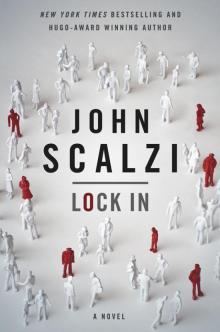 Lock In
Lock In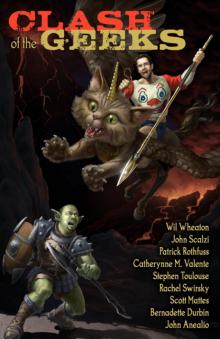 Clash of the Geeks
Clash of the Geeks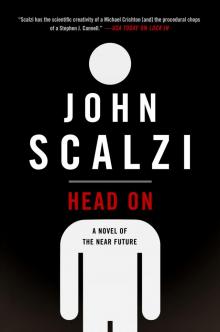 Head On
Head On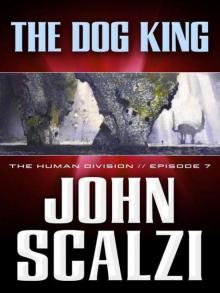 The Dog King
The Dog King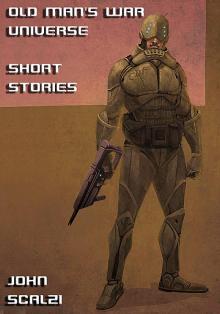 Old Man's War Universe: Short Stories
Old Man's War Universe: Short Stories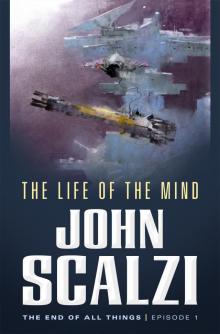 The End of All Things
The End of All Things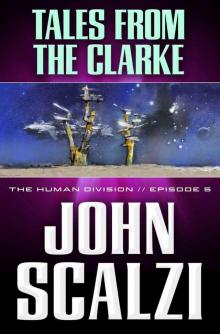 Tales From the Clarke
Tales From the Clarke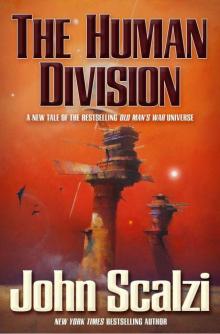 The Human Division
The Human Division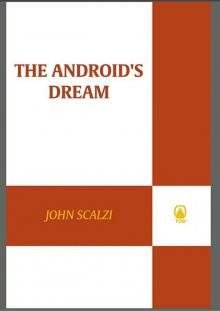 The Android's Dream
The Android's Dream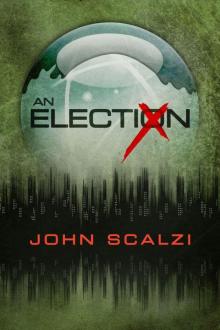 An Election
An Election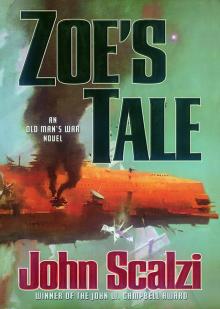 Zoe's Tale
Zoe's Tale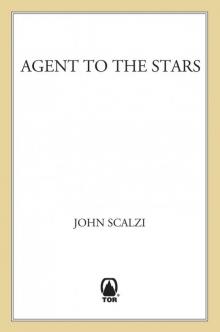 Agent to the Stars
Agent to the Stars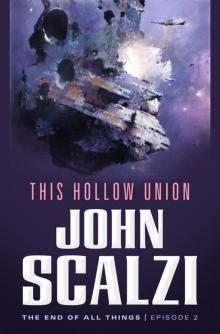 This Hollow Union
This Hollow Union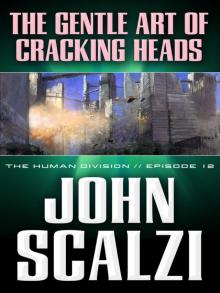 The Gentle Art of Cracking Heads
The Gentle Art of Cracking Heads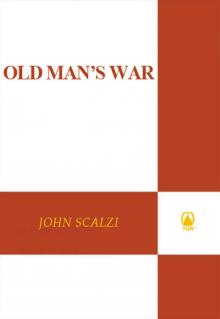 Old Man's War
Old Man's War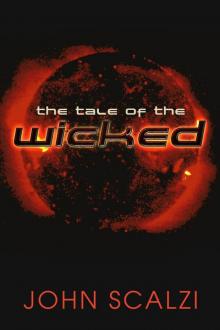 The Tale of the Wicked
The Tale of the Wicked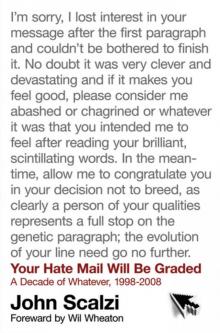 Your Hate Mail Will Be Graded: A Decade of Whatever, 1998-2008
Your Hate Mail Will Be Graded: A Decade of Whatever, 1998-2008 Judge Sn Goes Golfing
Judge Sn Goes Golfing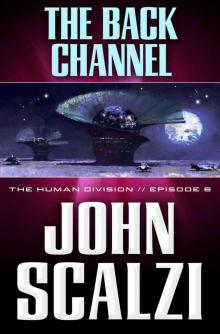 The Back Channel
The Back Channel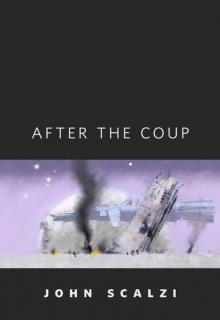 The Human Division 0.5 - After the Coup
The Human Division 0.5 - After the Coup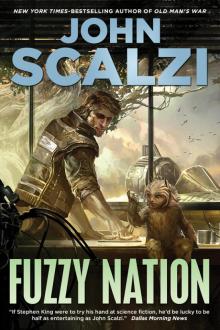 Fuzzy Nation
Fuzzy Nation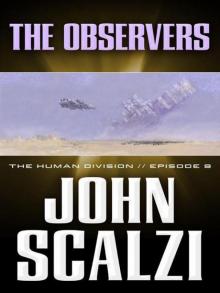 The Observers
The Observers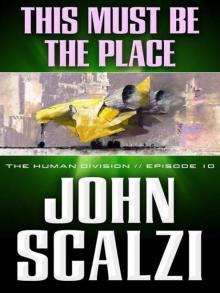 This Must Be the Place
This Must Be the Place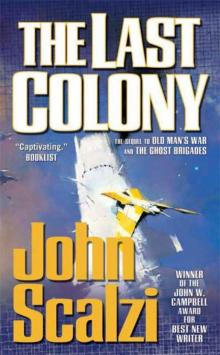 The Last Colony
The Last Colony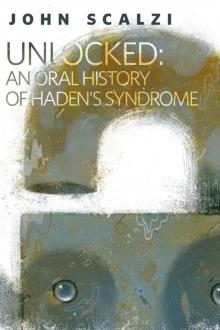 Unlocked: An Oral History of Haden's Syndrome
Unlocked: An Oral History of Haden's Syndrome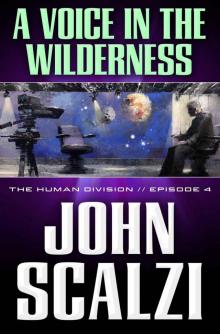 A Voice in the Wilderness
A Voice in the Wilderness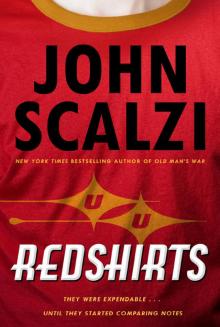 Redshirts
Redshirts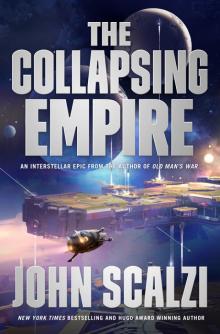 The Collapsing Empire
The Collapsing Empire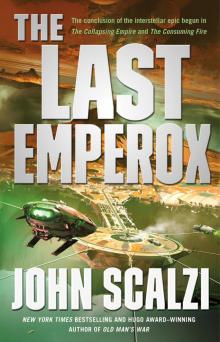 The Last Emperox
The Last Emperox The God Engines
The God Engines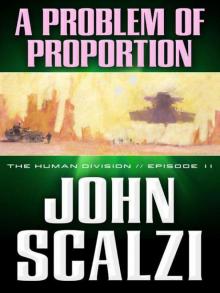 A Problem of Proportion
A Problem of Proportion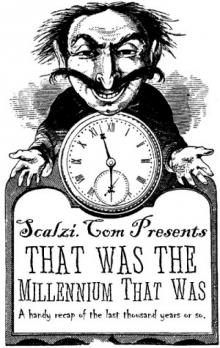 THAT WAS THE MILLENIUM THAT WAS
THAT WAS THE MILLENIUM THAT WAS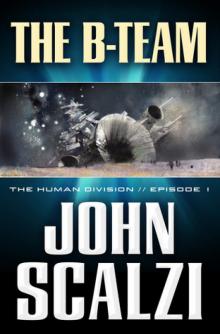 The B-Team
The B-Team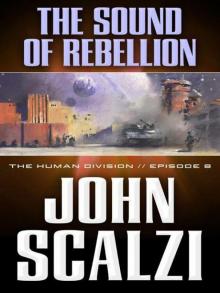 The Sound of Rebellion
The Sound of Rebellion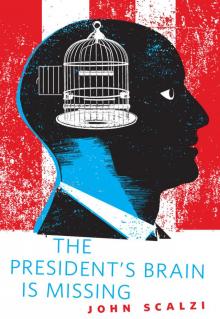 The President's Brain Is Missing
The President's Brain Is Missing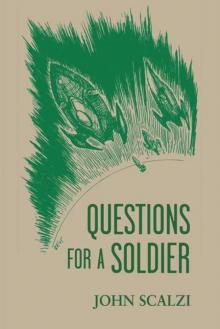 Questions for a Soldier
Questions for a Soldier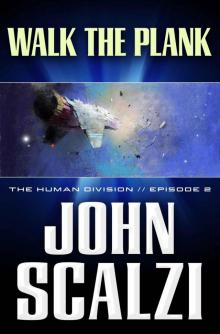 Walk the Plank
Walk the Plank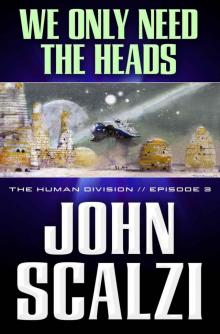 We Only Need the Heads
We Only Need the Heads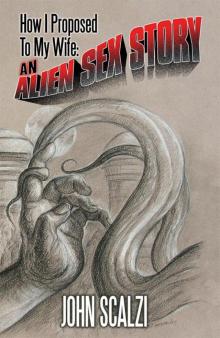 How I Proposed to My Wife: An Alien Sex Story
How I Proposed to My Wife: An Alien Sex Story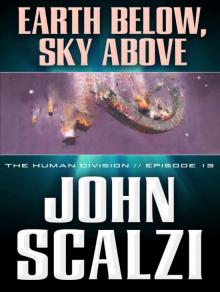 Earth Below, Sky Above
Earth Below, Sky Above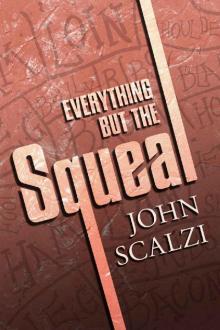 Everything but the Squeal
Everything but the Squeal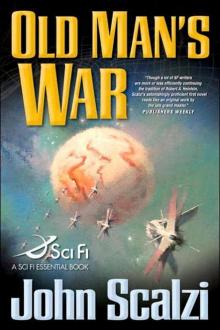 Old Man’s War
Old Man’s War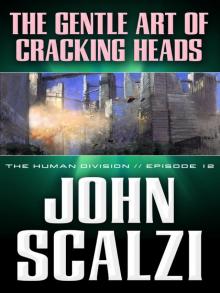 The Human Division #12: The Gentle Art of Cracking Heads
The Human Division #12: The Gentle Art of Cracking Heads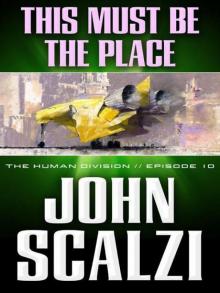 This Must Be the Place thd-10
This Must Be the Place thd-10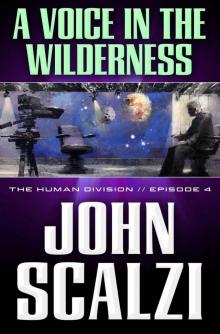 A Voice in the Wilderness thd-4
A Voice in the Wilderness thd-4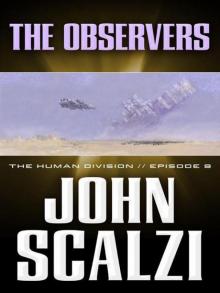 The Observers thd-9
The Observers thd-9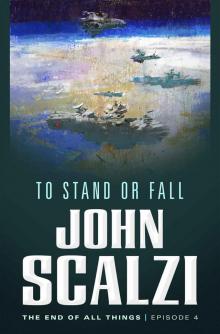 The End of All Things: The Fourth Instalment
The End of All Things: The Fourth Instalment Earth Below, Sky Above thd-13
Earth Below, Sky Above thd-13 Zoe`s Tale вбиос-4
Zoe`s Tale вбиос-4 After the Coup
After the Coup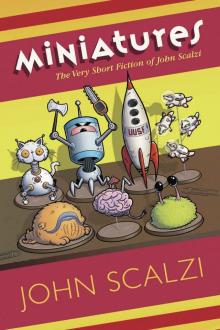 Miniatures: The Very Short Fiction of John Scalzi
Miniatures: The Very Short Fiction of John Scalzi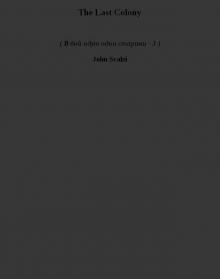 The Last Colony вбиос-3
The Last Colony вбиос-3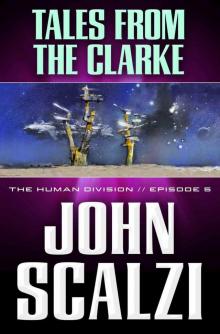 Tales From the Clarke thd-5
Tales From the Clarke thd-5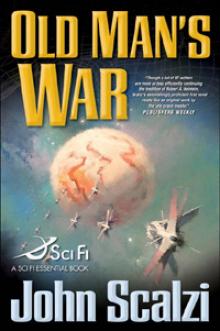 Old Man's War omw-1
Old Man's War omw-1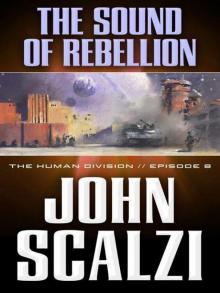 The Human Division #8: The Sound of Rebellion
The Human Division #8: The Sound of Rebellion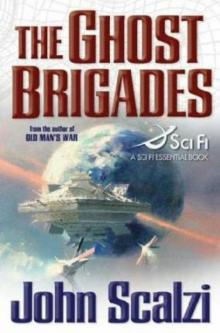 The Ghost Brigades omw-2
The Ghost Brigades omw-2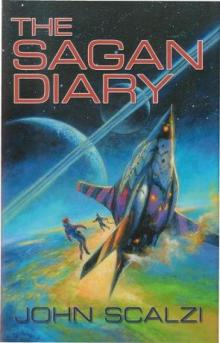 The Sagan Diary (old man's war)
The Sagan Diary (old man's war)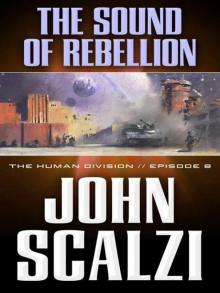 The Sound of Rebellion thd-8
The Sound of Rebellion thd-8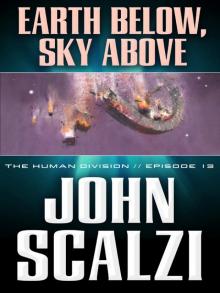 The Human Division 13 - Earth Below, Sky Above
The Human Division 13 - Earth Below, Sky Above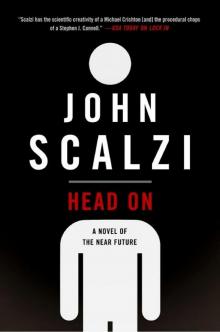 Head On_A Novel of the Near Future
Head On_A Novel of the Near Future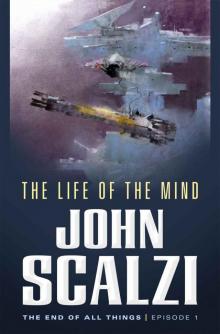 The End of All Things: The First Instalment
The End of All Things: The First Instalment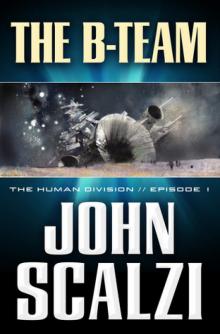 The B-Team thd-1
The B-Team thd-1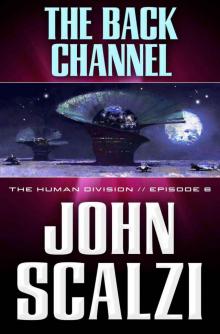 The Back Channel thd-6
The Back Channel thd-6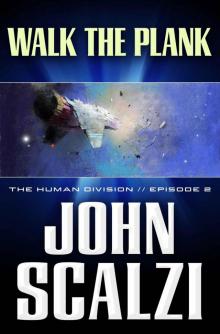 Walk the Plank thd-2
Walk the Plank thd-2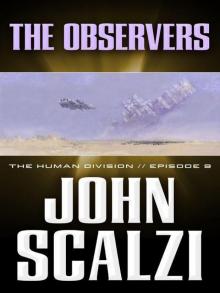 The Human Division #9: The Observers
The Human Division #9: The Observers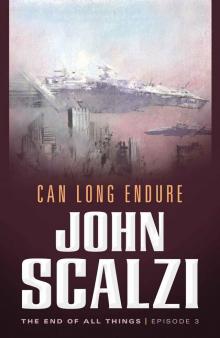 The End of All Things: The Third Instalment
The End of All Things: The Third Instalment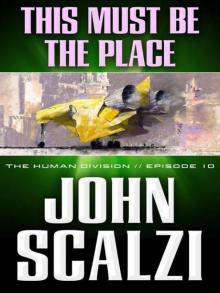 The Human Division #10: This Must Be the Place
The Human Division #10: This Must Be the Place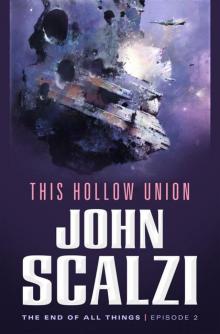 The End of All Things #2: This Hollow Union
The End of All Things #2: This Hollow Union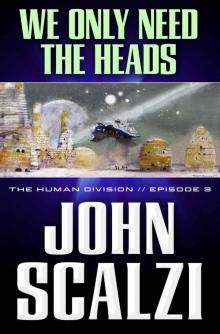 We Only Need the Heads thd-3
We Only Need the Heads thd-3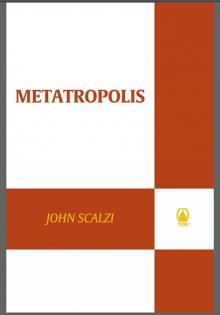 Metatropolis
Metatropolis The Dog King thd-7
The Dog King thd-7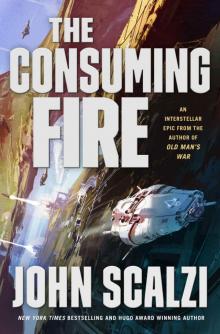 The Consuming Fire (The Interdependency)
The Consuming Fire (The Interdependency)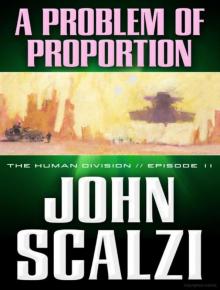 The Human Division #11: A Problem of Proportion
The Human Division #11: A Problem of Proportion